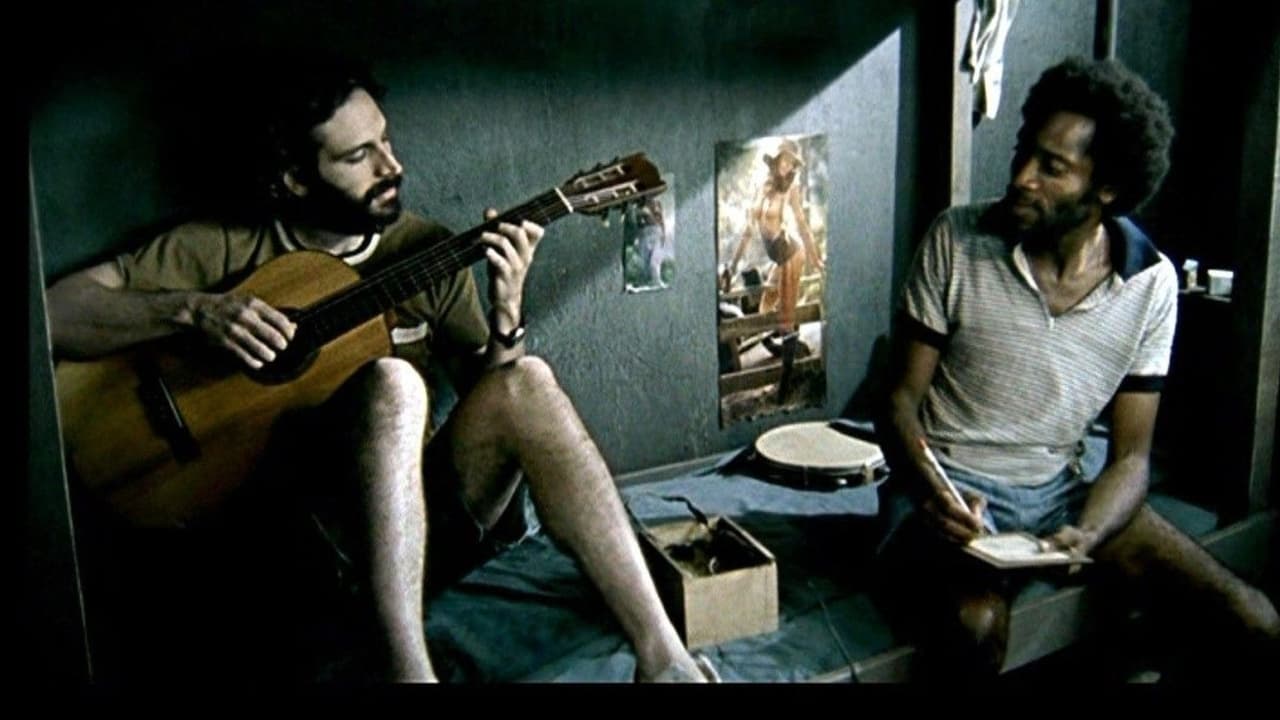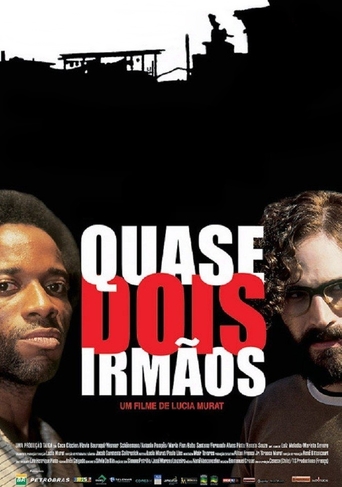

What makes it different from others?
... View MoreGood start, but then it gets ruined
... View MoreThis movie feels like it was made purely to piss off people who want good shows
... View MoreAmazing worth wacthing. So good. Biased but well made with many good points.
... View MoreI watched this movie by my father's recommendation, but I am not disappointed at all. First of all,this film show us in a great way, how the ''Comando Vermelho'', a big criminal gang from Rio de Janeiro, was formed and how the guys learned how to organize their criminals and teams. I think this movie will mark mainly brazillians, special the ones from Rio de Janeiro like myself, but this is not a reason why foreigners should not watch,specially if they liked ''Cidade de Deus''. Caco Ciocler already is considered a great actor,as well as Marieta Severo and Antônio Pompêo,but this movie have show me a new excellent actor: Flavio Bauraqui(who plays Jorginho in the 70's)
... View MoreI saw this last night and thought it was brilliant and beautiful. It's like a deeper, more realistic version of "The City of God" with more social context. The audience applauded at the end of last night's showing, which hasn't happened too often at other festival showings I've been to. Lucia Murat, the director, was there last night. She told us that both she and her husband were left-wing activists and political prisoners in the 1970s under the military rule. The prison part of the story is based partly on her and her husband's experience. She worked with the author of the book version of "City of God" to get nuances of the slum life right (Paulo Lins, author of "Cidade de Deus"). Many of the child actors in the movie actually live in the slums. The use of non-linear narration, the interlacing of several stories from different time periods (like in "21 Grams"), is confusing at first. It's a little hard to keep track of who's who. But if you pay attention and bear with it for the first half hour, the confusion does clear up. I think this mixing of stories is done for more than just theatrics. It reminds us that these people from different worlds, rich and poor, black and white, are really related and interdependent.
... View More...and I found it great because it examines the process that lead to the huge social crisis we are currently living in Brazil without resorting to maniqueism. It actually blames everyone that is to be blamed. Mrs Murat knows what she is talking about when presents us the reality of the political prisoners in Brazil's 60s and 70s, she's actually been there. However, she never falls into the endless mourning of the poor intellectuals that were forced to live among ordinary prisoners. She actually presents a question and leave it for the watchers to make their own conclusions. The only weak leak is left to the nowadays romance between Maria Flor's character and her slum chief boyfriend. The acting is weak and her character is shallow - nobody knows what are her feelings, why is she there, how much she loves him (and maybe that's because there was too many things to be told at the same time).
... View MoreQUASE DOIS IRMÃOS (the title translates as something like ALMOST LIKE TWO BROTHERS) is a brutal examination of Brazilian society, divided between black and white people, between politicians and drug barons, men and women, mothers and sons, us and them. There are times when these worlds live together, but they are bound to collide, crash and burn. The movie follows the friendship between a black man from the slums (Jorge) and a communist (Miguel). In their childhood, they play games and listen to the samba; in their youth, they are arrested (Miguel for political reasons, Jorge for being a thief); later, Jorge has become a drug baron and Miguel is a politician who forgot his dreams of changing the world. The centerpiece of the movie is the time they spent together in jail. Miguel learns that the "people" for whom he fights is not the way he idealizes them, and Jorge learns how to take the "political view" into the crime life, thus generating the organized crime. The director Lucia Murat, no strange to political persecutions herself(she was arrested and tortured by the dictatorship in Brazil)conducts this epic story with intimate care and great storytelling. The cast is top-notch, with great Brazilian actors giving the performances of their lives (Caco Ciocler and Flavio Bauraqui are standouts). A masterpiece from Brazil who deserves to be discovered.
... View More